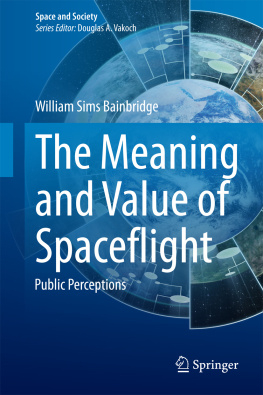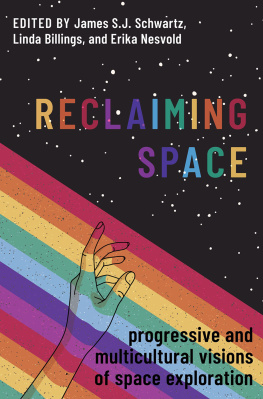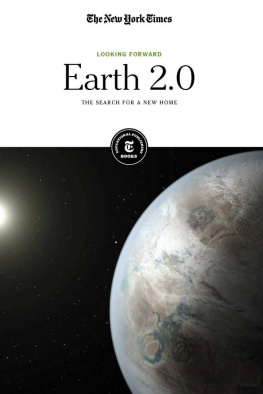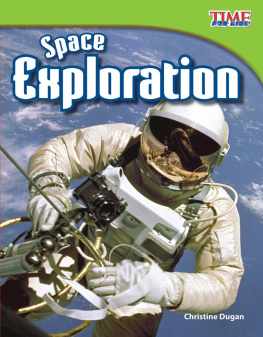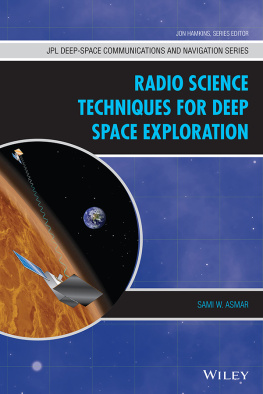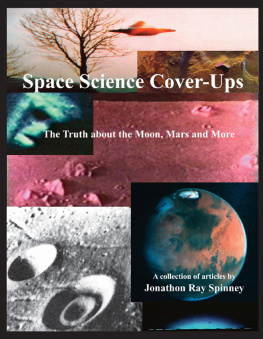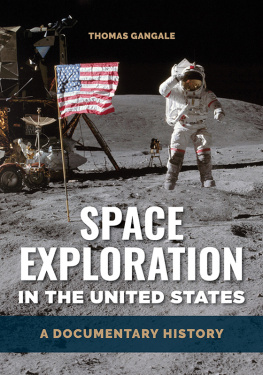Over a brief period of time, within the entire context of human history, men have visited the Moon and robot spacecraft have explored the full width of the solar system. Yet the future of spaceflight is uncertain, and plans for an expedition to Mars dating back as much as seven decades are far from realization. Both to identify the basis for possible future progress and to understand one of the great human challenges, we need to know what spaceflight means. It may mean many things, serving different values for different people, so research on the meaning of spaceflight can become a tool for understanding human meaning in general.
This is a book of history, charting and analyzing public opinion, political ideology , and artistic expression related to space exploration, using data from 1938 until 2012. Included are many standard public opinion polls, not merely reporting responses to individual questions but often analyzing raw data from Harris Polls and the General Social Survey , to identify factors that shape perceptions of space. Other questionnaire surveys of special populations, often using far more questions about space than are found in any ordinary poll, were carried out by the author. In addition, the proliferation of new online forms of data analogous to opinion polls enable new forms of analysis, some of which have never been tried before.
Unfortunately, social science has tended to ignore spaceflight as a research topic, leaving the field to advocates and historians, so one function of this book is to bring together information from many sources that have not previously been considered as a whole in the light of theory. Many potential insights will be offered, more as hypotheses than as confident findings, in hopes that social scientists will begin serious work on issues crucially important for the future of humanity. Only after each idea has been debated in the journals, and tested through replication with new datasets, can we be sure what the real meaning of spaceflight is, and how it illuminates the shape of things to come.
1.1 A Time of Indecision
On July 21, 2011, during the 42nd anniversary of the Apollo 11 flight to the Moon , the landing of Atlantis ended the space shuttle program. Historian Roger Launius has called the shuttle, a vehicle filled with contradictions and inconsistencies (Launius ). While we cannot know how American spaceflight would have developed without the shuttle, it had over-optimistically promised to render spaceflight cheap and safe. The fatal disasters that ended the last flights of Challenger and Columbia contradicted the hope of safety, and the failure of the United States to develop a second-generation shuttle reflected the economic realities. The Bush and Obama administrations launched their own new spacecraft, using the word s launch and new only in a figurative sense, because neither the Constellation nor the Space Launch System had left the Earth by the time this book was published, and both seemed to be remakes of the antique Saturn rockets that first flew half a century before the last flight of Atlantis.
What did this final shuttle flight mean? Reporting results from a public opinion poll administered during the last Atlantis mission, The Christian Science Monitor sought to answer this question about the space shuttle program: Were Americans sad to see it go? Of the 904 people who were asked, 56 % opposed cancellation of the shuttle program, and 52 % felt it had justified the cost. Yet when asked what should happen with NASA funding, only 10 % wanted it increased. A plurality of 49 % were happy to see it stay the same; 28 % wanted it decreased, and 8 % wanted to end NASA (Sappenfield ).
A CNN poll of 1,009 Americans, carried out during the flight and released at the time of the landing, focused on the future, asking about the national impact of the termination of the shuttle and the prospects for a successor. It must be admitted that the polls introduction may have biased the pattern of responses: As you may know, the current space shuttle mission will be the final time that the U.S. will send astronauts into space using the shuttle. Until the U.S. develops a replacement for the shuttle, all manned U.S. space flights will take place in spacecraft that are owned by other countries. Overall, do you think the end of the space shuttle program will be good for the U.S., bad for the U.S., or not have any effect on the U.S. at all? Just 16 % were willing to resist this suggestion that cancellation would be bad, calling it good, 33 % said it would have no effect, and 50 % gave the expected response that this situation would be bad. In response to other questions, fully 87 % predicted the US will develop a replacement spacecraft that will be capable of sending U.S. astronauts into space and returning them to Earth, and 75 % said the US should indeed do so (CNN/ORC Poll press release 21 July ).
The highly respected Pew Research Center conducted its own poll of 1,502 adult residents of the US a month before the last Atlantis flight, using somewhat better methodologies of data collection and analysis to explore the meaning of the shuttle program (Pew Research Center ). The first space-related question in the Pew poll asked, Do you think the space shuttle program has been a good investment for this country, or dont you think so? While 9 % declined to answer, 55 % called it a good investment. In its report of results, Pew contrasted this fraction with the 70 % who called it good investment in June 1986, after the January 1986 Challenger disaster, and 66 % who did so in August 1981, 4 months after the first shuttle orbital mission. It is noteworthy that the earlier polls used slightly different wording, is a good investment rather than has been a good investment, reflecting the fact that the shuttle had a future during the earlier years.
The Pew survey also asked several questions about the respondent, for example finding that 59 % of men thought it was a good investment, versus 52 % of women. Republicans were more supportive than Democrats, 63 % to 48 %, and there was a similar difference between those with annual family income more than $75,000 versus less than $30,000, 67 % compared with 44 %. The difference by education was about the same, 66 % of colleague graduates calling the shuttle a good investment, compared with 47 % of those with high school educations or less.
Four questions sought to learn what values the space program served for many Americans. One asked, In your view, is it essential or not essential that the United States continue to be a world leader in space exploration? While 4 % expressed no opinion, 58 % felt it was essential, and 38 % felt it was not. The three other value questions began: Thinking about the space program more generally, how much does the U.S. space program contribute to Here are the percents who answered a lot:
38 % Scientific advances that all Americans can use
34 % This countrys national pride and patriotism
39 % Encouraging peoples interest in science and technology.
During the years around the end of the shuttle program, the Gallup Poll measured public support for the space program more generally, for example in July 2009 finding that 58 % of Americans felt the space program had been worth the investments in it. One demographic variable influencing attitudes was age , and the Gallup report remarked, Notably, those old enough to remember the historic moon landing are actually somewhat less likely than those who are younger to think the space programs costs are justified. Among Americans aged 50 and older (who were at least 10 years old when the moon landing occurred), 54 % think the space programs benefits justify its costs, compared with 63 % of those aged 1849 (Jones ). In later chapters we shall consider both changing public opinions about space exploration over six decades of history, and the influence of age .

